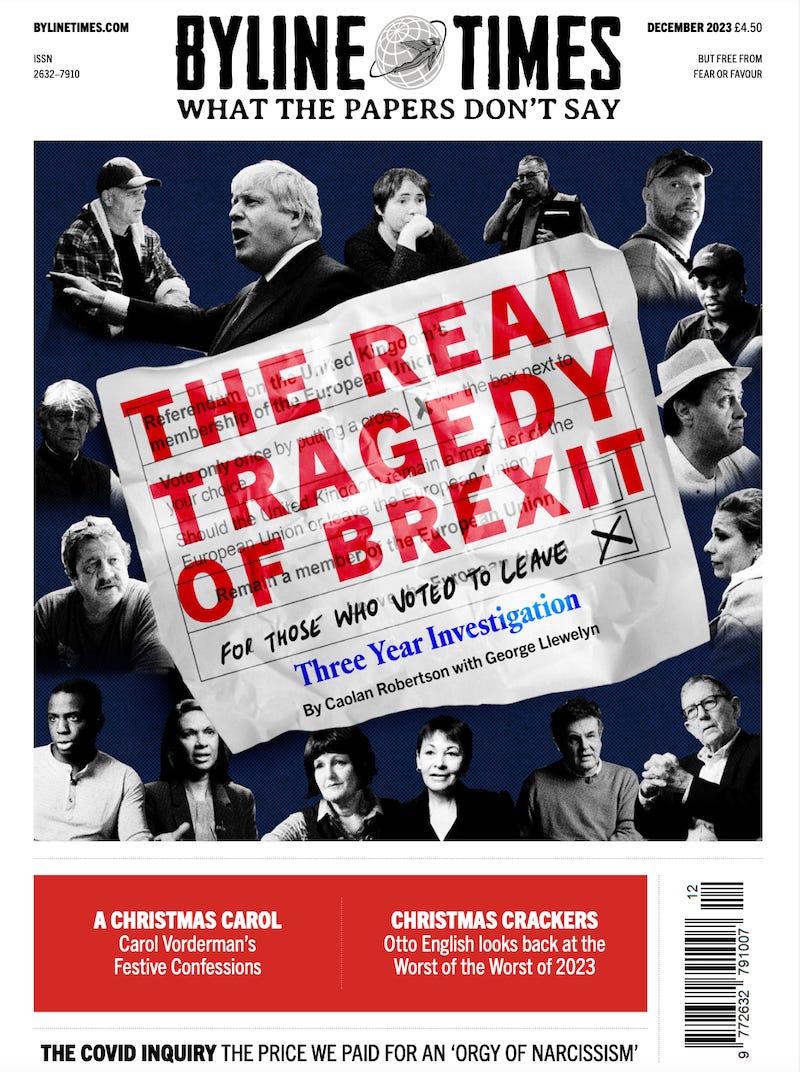The British Public Have Made Their Minds Up About Rishi Sunak and it Doesn’t Look Good
The Prime Minister will not be happy about the findings of our new poll
The British public appear to have made their minds up about the Prime Minister, and their view is unlikely to go down well inside Downing Street.
In recent months Rishi Sunak’s Government have launched a series of ‘relaunches’ or ‘resets’ designed to deal with polls showing they remain in excess of twenty points behind the opposition Labour Party.
Last week the Chancellor Jeremy Hunt announced a series of tax cuts designed to transform public opinion about Sunak’s Government. This was followed this week by the Prime Minister engaging in an extended public spat with the Greek Prime Minister over the fate of the Elgin Marbles.
However, new polling commissioned by Byline Times this week suggests that these various attempts to change the narrative about Sunak and his Government are not working.
Asked by pollsters We Think whether they viewed Sunak as more of a weak or more of a strong leader, almost three quarters (73%) said they saw him as more weak, compared to just 27% who saw him as more strong.
Even among current Conservative voters, four out of ten (39%) say they view him as a more weak than strong leader.
By contrast Keir Starmer is seen in a significantly less negative light than the Prime Minister. Asked whether they saw him as more weak, or strong, 55% of all voters said they saw him as being more weak, compared to 45% who saw him as more strong.
Labour voters were also less likely to see their leader as weak than Conservative voters, with just 26% labelling Starmer as more weak than strong.
Voters were also asked to pick from a list of critical and complimentary adjectives to describe the Prime Minister and his main opponent.
Among all voters the most popular words used to describe Sunak were ‘Untrustworthy’, ‘Weak’ and ‘Entitled’.
By contrast the most popular words used to describe his Labour opponent Keir Starmer were ‘Boring’, ‘Responsible’ and ‘Thoughtful’.
Recent figures showing record immigration numbers also appear to have damaged perceptions of Sunak’s Government.
84% said the Government’s immigration policy had been a failure, compared to just 16% who said it had been successful. Overall voters are now more likely to trust Labour on the issue than the Conservatives by 41% to 27%.
Sunak’s row with the Greek Prime Minister also does not appear to have gone down well with British voters.
Asked whether Sunak did the right or wrong thing by cancelling his meeting with the Greek PM, following his intervention over the Elgin Marbles, 43% said it was the wrong thing to do, compared to just 15% who agreed with Downing Street.
Sunak used Prime Minister’s Questions this week to accuse Starmer of “siding with an EU country” over the issue, despite Starmer ruling out changing the law to allow the marbles’ return.
However, our poll found that voters are more likely than not to say that the Marbles should be returned to Greece, by 44% to 20%.
The UK Should Reverse Brexit, say voters
The President of the European Commission, Ursula von der Leyen caused controversy this week after suggesting that the UK would likely end up reversing Brexit and returning to the EU.
Her comments were rejected by both Downing Street and the Labour Party. However, our poll suggests that most voters agree with her.
Asked whether the UK should one day rejoin the EU, 61% of voters said that we should, compared to just 39% who said that we shouldn’t.
However, voters aree split down the middle on whether such a reunification will ever actually happen, with 50% saying it will, compared to 50% saying it won’t.
Younger voters are more confident of Brexit being one day reversed, with 59% of those under the age of 40 saying it will be, compared to just 44% of those over 40.
The findings come as Byline Times publishes its three year investigation revealing the scale of Brexit regret among ordinary Brits.
The investigation can be read in the current edition of our monthly newspaper available to subscribers and in shops and supermarkets across the country.



